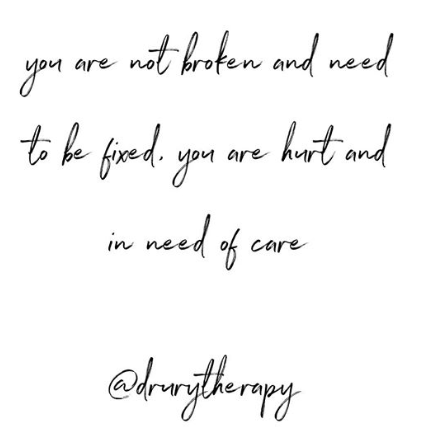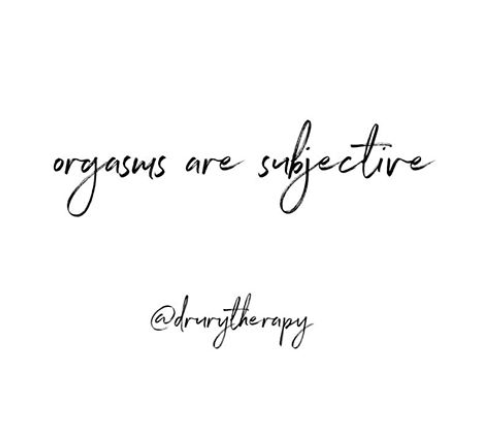In order to tackle an issue we must attempt to understand the root cause. Symptoms are an indication that something significant is not right.
Let's take anxiety for example. Anxiety is like the warning light on your car dashboard. It is trying to tell you that something is wrong. Its telling you to stop, to check and to pay attention to something. If you continue to ignore the warning light, you run the risk of breaking down. Most of us have done this, ignored that light (guilty!) But this only perpetuates the issue and puts us more at risk. Our body is similar to a car; it needs fuel, care and some respite. When our brain sends us signals that something isn't quite right (tight chest, palpitations, nausea, to name but a few) take note of it. Stop. Find out what it is telling you and then take care of yourself.
Today is World Suicide Prevention Day and an important reminder that everyone can make a difference to others who have reached the point of wanting to end their lives.
In the UK, the suicide rate appears to have risen for the first time since 2013, according to new figures from the Office of National Statistics.
With a sharp rise in young women from the ages of 10-to-24.
Some of the reasons for this are:
Domestic abuse, pornography and unrealistic body ideals. However, if someone ends their life there is complex story behind it.
The WAIT acronym is a wonderful way to remember how to support someone who you maybe worried about. One of the biggest misconceptions I've heard, on numerous occasions from people, is the idea that you shouldn't mention suicide as it may give the person the idea to act on it. This couldn't be further from the truth. If you are concerned; ask. Ask if they have thought about ending their life. Ask if they feel like hurting themselves. Say that you are concerned. Opening up dialogue is a wonderful way of removing barriers, allowing and facilitating honest communication.
If you are someone experiencing suicidal thoughts. Know that you are not alone. Know that it's ok not feel ok. Know that it's ok to seek help. Please note my highlights where there are numbers you can contact to get support.
The need for control has a huge influence in all of our lives. Gaining and maintaining control can makes us feel more content and relaxed. However sometimes it can operate as a survival mechanism, offering an unhealthy way to protect ourselves. This can be due to trauma, a chaotic childhood, perfectionism and attachment issues. By attempting to control others, situations or the outside world, it creates a false way of decreasing anxiety.
Therapy is a wonderful way to get support and insight into the need of control and how to help overcome it. Discovering and recognizing the source of distress and learn instead to meet it with empathy and self- compassion, can help overcome the need for control as self-protection.
Something I see regularly in my consulting room, as I'm sure all therapists do (!) is anxiety. Most people I speak to don't immediately see the correlation between anxiety and sexual dysfunction they are presenting with. In fact, anxiety and sexual dysfunction have a highly complex relationship. Panic and worry have a physical effect on your body, ramping up the production of stress hormones like adrenaline that make you feel on edge. Often there is a strong cause and effect, this catch-22 tends to amplify both issues and lead people to feel isolated.
If you are experiencing anxiety and it is affecting your body image, ability to be intimate, or orgasm. Speak to a professional. Treating your anxiety in the first instance can often greatly alleviate sexual dysfunctions.
More often than not we have different preferences to our partner. Knowing that’s OK is one thing, showing it is another. If your partner has different preferences, talking through and seeing if you can negotiate or compromise may be really helpful; alternating turns in what you like, or combining fantasies are a few options. Remember; we are all entitled to our likes and dislikes, especially in an area as personal as sexual satisfaction. The other side of that coin is that your partner is too.
Ridding ourselves of toxic energy, experiences and people is an incredible way to feel energised and revived. More often than not we maintain the same patterns of behaviour and expect different outcomes. A cleanse can facilitate the build-up of clutter and sluggish baggage which can drag us down. We place so much energy, time and money into our physical well-being, we neglect how harmful the environment is around us.
One example of how to start a cleanse: Try jotting down three things that create the sense of 'junk' in your daily life - whether its specific people, social media or your own negative thoughts. Then list two ways you could tackle each one (you may find some match up.) Another thing is to write down daily, 2 things that you were grateful for that occurred that day. Finally implement some mindfulness, I advocate for the Buddhify app, it's my personal favourite and just do 10 minutes a day. Try using your new techniques for 3-5 days and see if you feel any different. The goal isn't to rid yourself of negative emotions, rather help clear out stagnant ones. So, whether it is cutting down, replacing healthy for unhealthy or a full on detox, this exercise helps us to become aware of the damage that negative emotions have on us.
Trauma plays havoc with the body, having space to dedicate towards your body healing too is a great idea. There are several approaches to healing trauma that are based upon the premise that humans are comprised of energy. Different forms of energy therapies are in use as alternative or complimentary treatments. These can range from Reiki, acupuncture and Emotional Freedom Techniques (EFT). I am no expert in this field, however it is important to talk about these types of therapy to reinforce that one size does not fit all!
As we go through life we discover new ways to cope and protect ourselves from threats that can be linked to our younger years. For example; children with aggressive parents may as adults be submissive and conflict-avoidance, as their body remembers how they used to be overwhelmed when trying to fight back with parents. These are called "protective and safety behaviours". These behaviours are often rapidly activated. Despite the challenges and undesired consequences they may cause, it's important to note that these behaviours are absolutely not our fault and are incredibly understandable.
Celebrating milestones is a lovely way to be positive in your relationship. Revelling in each other’s achievements; from personal ones -like getting a new job, to collective ones-like monthly anniversaries, keeps the positive energy flowing. Being in a long-distance relationship can be a slog, so drawing on positive aspects can ease the tension. They can be an incredibly meaningful boost. It can remind your partner that they are a priority while also showing that you remember what is important to them. Another great aspect is that it brings you together. I constantly try to get couples to ‘turn towards’ each other. That means coming together as a team and building on the resilience you already have. Celebration can help booster just that!
I always ask clients detailed questions about their youngest years. We can inherit stress, poor self esteem, trauma and so much more in that duration. Children and babies are sponges: Between the ages of 0 – 6 are our programming years. It is when our brains are in their Delta and Theta brainwave frequency. These are the same states adults are in when meditating, daydreaming or under hypnosis.
At this age range children download massive amounts of information about the world and how it works and are incredibly open to suggestibility. These perceptions become the fundamental subconscious programs that shape the character of a person's life.
Children will begin to have made decisions at a sub-conscious level, about how they ‘should’ and ‘shouldn't ’ be or do in order to be seen as OK, and to feel secure within family, life and themselves.
As an adult these 'shoulds' later transform into our scripts and beliefs of how our lives 'should' and 'shouldn't' be: who we should pick as a partner or friends, what our goals and accomplishments may be etc. The role parents and adults play in these poignant years of children is crucial and many are unaware of what an impact they can have. So, be mindful around little ones, as they are picking up more than we realise.
Recently I have found myself thinking a lot about forgiveness. Partly because of articles I am writing about trauma and partly due to research I have been doing on culture and religion. Forgiveness is intertwined in most religions and indicates holding power.
There is this idea that in order to move forward, we must forgive. That with forgiveness we will find true happiness and freedom. I don't believe this is the case. I am not talking about disagreements or arguments that are had between couples or family members. It's those who have experienced trauma or abuse at the hands of others, individuals who walk into my clinic room, holding pain and suffering. Although the idea of forgiveness seems simple, it can be very emotionally loaded and complex, particularly for trauma survivors.
I understand, of course, that if a person comes in and finds that the word “forgiveness” resonates, I do not discourage it. Forgiveness is highly personal and individual. You do not need to forgive so you can move on, instead move on in the right way for you.
Trust is a necessity to any healthy relationship. Anytime we treat someone as if they don’t matter, they are going to feel some kind of betrayal. Trust, not mistrust, is our default mode as individuals. It’s our experiences that impact our faith in others. When entering into, or maintaining a long-distant relationship, issues around trust can be enlarged. Therefore, it’s important to reflect back on your previous experiences with trust. Intimate, friendships and parental relationships can have impacted your belief in others. First and foremost, when you experience a pang of distrust, ask yourself; ‘is this true?’ Now, I know what you may be thinking-that it FEELS true, but that doesn’t mean it really is. Sometimes it’s past experiences or traumas coming back to haunt us. This is called projections. The displacement of past experiences on the present and individuals in it. Try to decipher whether they’re historical feelings bubbling up, or actually you have legitimate reasons to be concerned. Which leads me to my next paragraph on communication.
"They are damaged", "I'm messed up", "there is something wrong with me"; are just some of the sentences I hear regularly. Mental illness, trauma, a dysfunction, a break up...whatever is causing you pain, does not equate to being broken. The language that we use towards ourselves and others perpetuate stigma and shame. So choose your words carefully. And give yourself/that person; time, patience and compassion instead. Which are vital ingredients to facilitate healing.
Being stuck in the Drama Triangle can be exhausting-breaking the cycle of 'blame and complain' is no easy feat. But using a sentence like this facilitates change-it stops both parties being caught up in the rut. It opens up the possibility of effective communication and encourages you both to step out of the emotional brain and into the rational one.
No two orgasms are alike, everyone experiences them differently. They can change over time and are influenced by context. Orgasms are personal and individual and come (pun totally intended) in many forms
Here are a few:
•Blended orgasms (variety of different orgasms blended together)
•Relaxation orgasms (through deep relaxation techniques)
•Pressure orgasms (through indirect stimulation and pressure)
•Multiple orgasms (one after another or with a break in between)
•Finally another to mention is orgasmic anhedonia (also called pleasure dissociative orgasmic dysfunction) A dysfunction that is rarely mentioned.
This is when someone is unable to feel pleasure when they climax (men still ejaculate)
It is believed that it can be as a result of Spinal cord injury, ME, depression or issues with dopamine and testosterone levels.
Ultimately orgasms are not a 'one size fits all', they don't have to replicate the famous; When Harry Met Sally scene and can change and vary over time.
All couples fight, but those who fight fair are the ones who tend to stick together. Criticism often presents in the therapy room with couples. More often than not resentment has built up and criticism becomes child play "they never ", "she always" are some of the sweeping statements that become thrown around habitually.
Criticism can increase the likelihood of your partner becoming defensive* and there is also a possibility of it spiralling into contempt*
If you are noticing this style of communicating increasing in your discussions, act now to learn safer and more effective ways to talk about your differences . There’s nothing wrong with voicing concerns and complaints in a relationship, but try to do so in a way that focuses on your own feelings and how your partners behaviour affects you. Try to find constructive solutions to aid you achieve mutual fulfilment. "I" statements are a great starting point. Try swapping the blame with "I feel" or "I wish". Another thing to do is try to identify whether or not the generalisations are true, it is quite common that they are in fact statements from a place of anger or hurt. If it's the case that comments arise from your own feelings, tap into that and try to understand why. Then perhaps you will be able to articulate in a manner that may lead you to be heard. *Contempt, defensiveness and criticism are 3 of 4 of John Gottman's The Four Horsemen of the Apocalypse (stonewalling is the fourth). These 4 categories of behaviour were found to be the main reasons for marriages ending in divorce. Criticism paves the way for the other 3.
Just because your erection is not hard as steel, doesn't mean you can't have a sizzling sex life. Not to mention that; to have a happy, healthy sex life, you don't need to have penetration. Sex is whatever you want it to be.
TRIGGER WARNING: Stealthing/rape- Two nights ago I asked women to anonymously share times, they had experienced stealthing. An act described as “the practice of one sex partner covertly removing a condom, when sexual consent has only been given by the other sex partner for condom-protected safer sex.” - If you consent to having safe sex and someone you’re intimate with violates what you have only consented to, it is rape. You are a rapist. People still have this idea that someone who rapes is this dodgy looking guy at the bottom of an alley way waiting around during midnight. It isn’t. A guy who slips off a condom without your knowledge is also a rapist. Many people who wrote in or commented on the thread I compiled admitted that they didn’t know there was a name for it (stealthing) and that’s because some don’t recognise it as being dangerous. If a woman consents to safe sex, you respect her wishes instead of risking her sexual health (exposing her to STI’s and unwanted pregnancies) because “it doesn’t feel great” - do not cross her boundaries for your pleasure. To the women who wrote in, thank you for sharing your experiences with me. You didn’t have to, but chose to, allowing me to bring more awareness. If you ever go through this, please contact a rape crisis centre who will be able to try and support you.
Passive aggressive behaviour takes many forms. Most of us know it by the obvious signs; verbal low-level attacks (criticism, snide comments etc) or indirect behaviours (slamming doors, stomping around). But passive aggressive behaviour may not always be conscious for example; procrastinating or avoiding (eg; being late), chronic forgetting, self-pity, withholding (actions such as sex, or even making a cup of tea), learned helplessness and shifting blame. Ultimately; passive aggressive behaviour is a way of expressing anger covertly or indirectly. This way of resolving issues seems almost unnoticeable. Passive aggressiveness can appear low-key, making it can difficult to identify and admit to. It can push people way with the slow drip-feeding of negativity. In order to change your behaviour, firstly, it's important to connect with the emotion. Often with PA behaviour it stems from not having a good understanding of why you are angry. Before you start addressing your actions start paying attention to what is triggering you. Then give yourself time to make the needed changes, showing yourself compassion as you do. Finally; practice! Practice how to assert yourself before you do, this will hopefully help you feel more confident.
"If we are comfortable enough to undress in front of our beauticians, why are so many of us still too embarrassed to take a potentially life-saving test?" Cervical screening is a at a 20 year low with two lives lost to cervical cancer every day.
Treatwell and Public Health England have teamed up to try and encourage people to attend their screenings through #lifesavingwax . Campaigning in salons through these leaflets to encourage change and conversation.
We take care of our appearance everyday-what about our health?




















